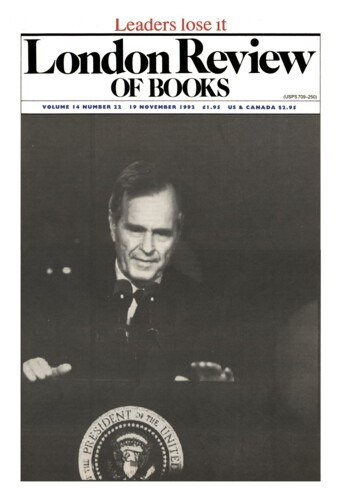‘He had lived primarily in his domestic affections, which were of the tenderest kind; and then – without eagerness, without pretension, but with a great deal of quiet devotion in his charming art.’ So Henry James summed up the career of his great predecessor in his Hawthorne of 1879. James was usually a shrewd critic, but ‘charming’ is hardly the adjective that first leaps to mind when the modern reader confronts ‘Rappaccini’s Daughter’, say, or The Marble Faun. Especially since the Second World War, most 20th-century commentators have preferred to echo Melville’s celebrated remarks on his contemporary’s ‘great power of blackness’. If we are to credit Dearest Beloved, T. Walter Herbert’s dramatic reinterpretation of life among the Hawthornes, James’s tribute to the ‘domestic affections’ falls equally wide of the mark. Herbert does not refuse to believe in the Hawthornes’ tender feelings for one another, but he insists on the rage and terror that must have accompanied such tenderness, on the deep anxieties that, in his view, inevitably haunted the peaceful arrangements of the middle-class home. From a career that James thought ‘probably as tranquil and uneventful a one as ever fell to the lot of a man of letters’, a life ‘almost strikingly deficient … in what may be called the dramatic quality’, Herbert constructs an often lurid tale of psychosocial conflict and ‘torment’, a narrative of the domestic affections translated into the idiom of New Historicist gothic.’
Dearest Beloved: The Hawthornes and the Making of the Middle-Class Family by Walter Herbert. ‘He had lived primarily in his domestic affections, which were of the tenderest kind; and then – without eagerness, without pretension, but with a great deal of quiet devotion in his...





